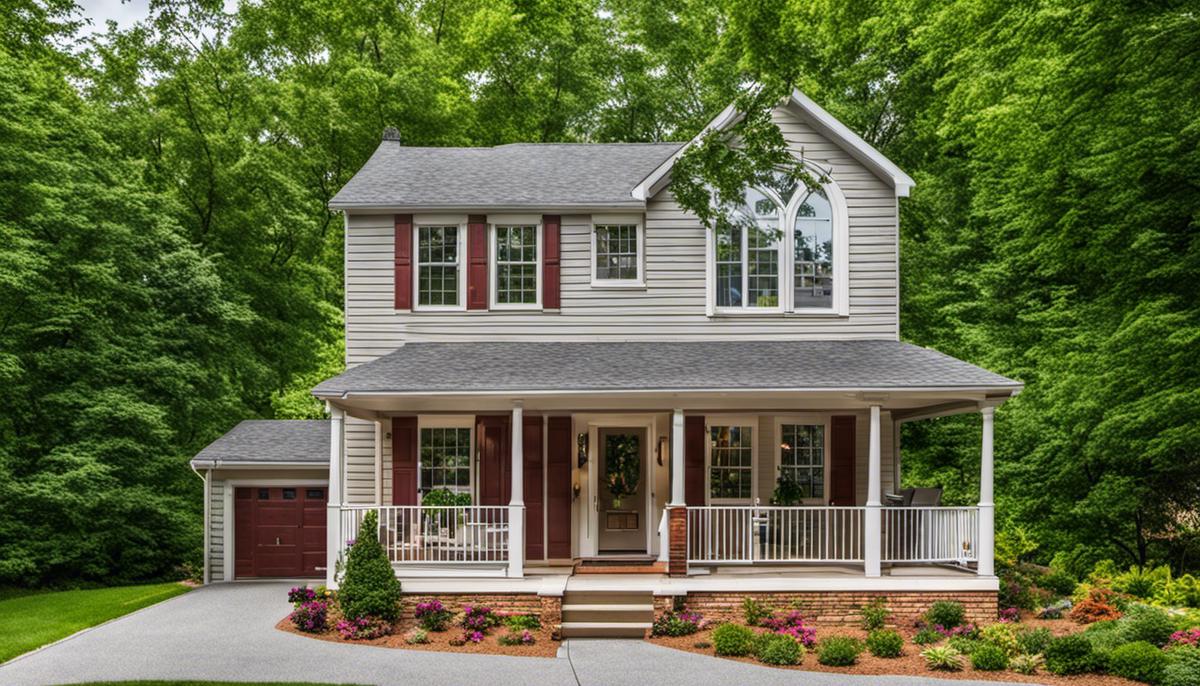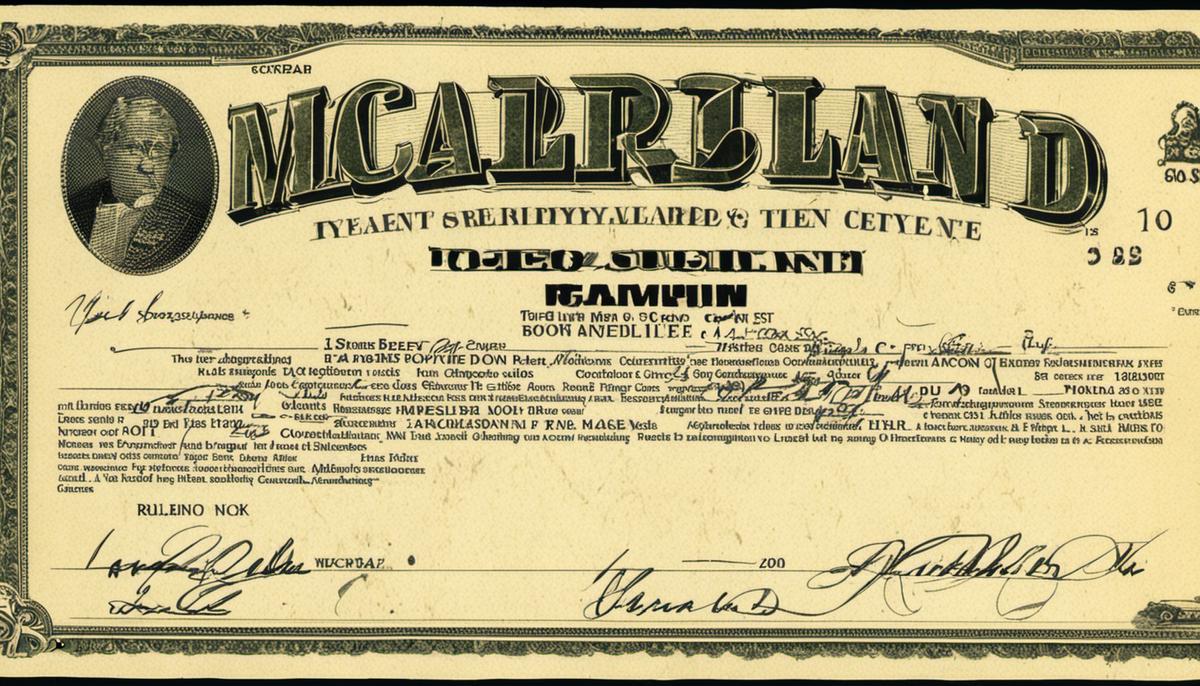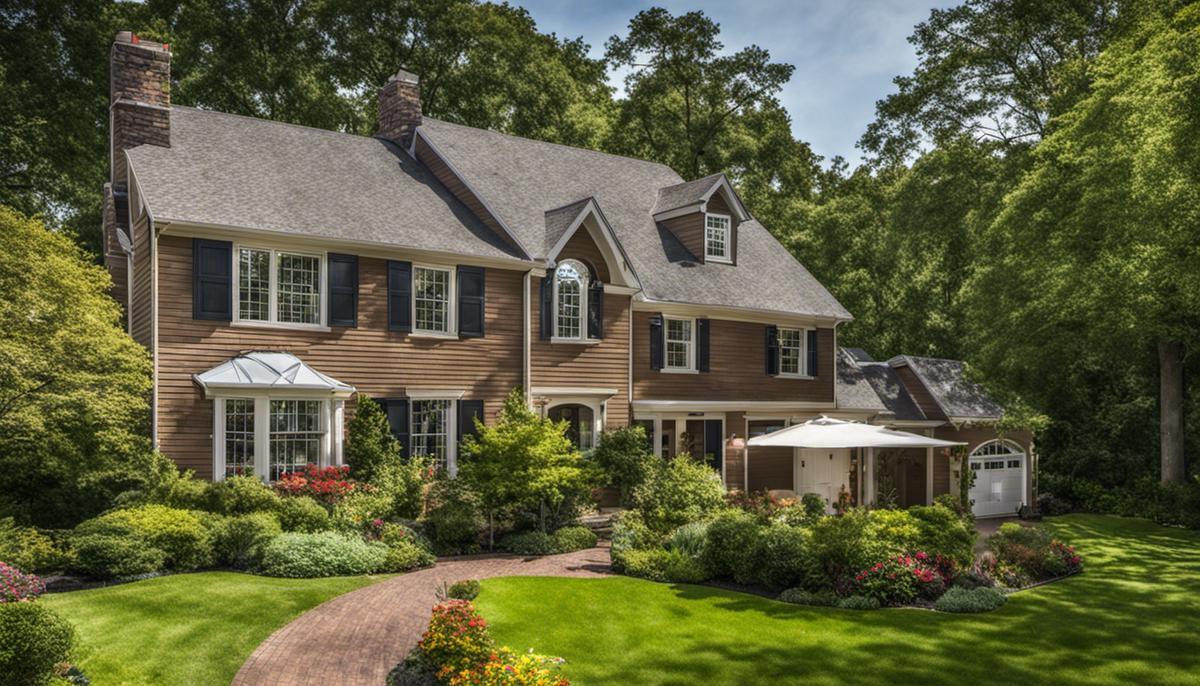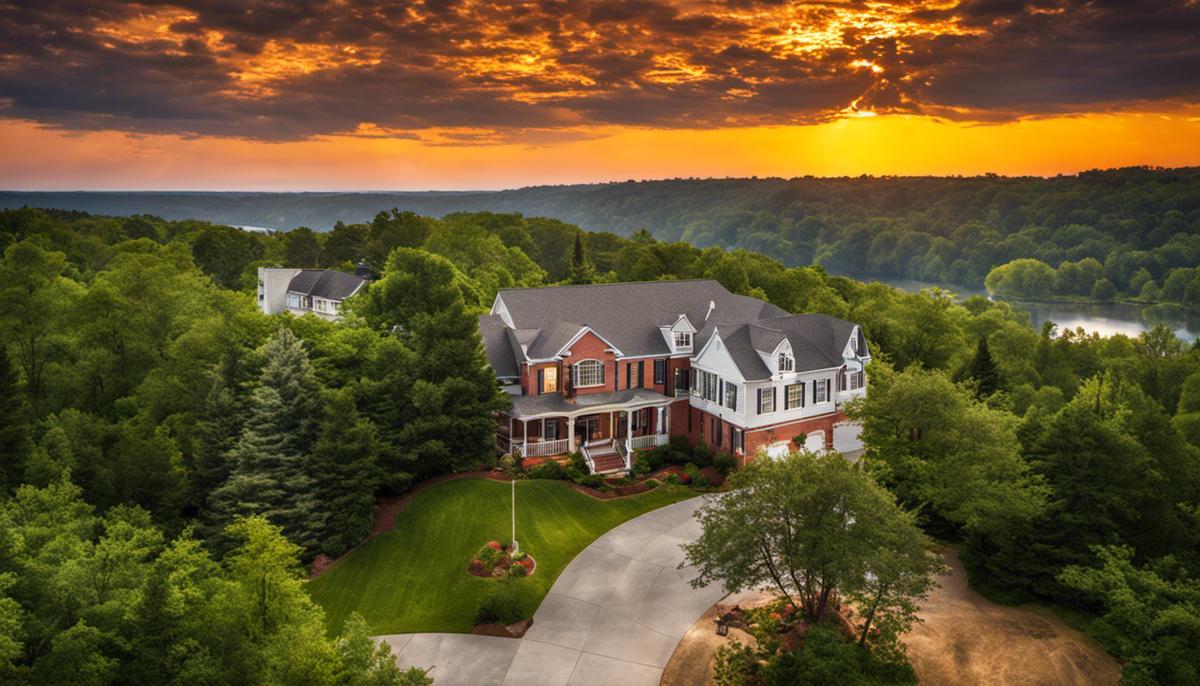The intricacies of Maryland rentals for single-family homes encompass a diverse terrain of legalities and requirements, fundamental for landlords and would-be property renters. This spectrum ranges from understanding the basics of rental licenses in Maryland, the process of obtaining one, adherence to home inspection procedures, to maintaining and renewing the license. Whether you are an aspiring landlord or a homeowner looking to rent out your single-family home, grasping these elements can be crucial to staying on the right side of the law, ensuring you comply with safety standards, and protecting the rights of your tenants.
Maryland Rental License: An Overview
Understanding Maryland Rental License
In the state of Maryland, every owner who wishes to rent out a single-family home is mandated by law to obtain a residential rental license. This requirement, governed by the Maryland Department of Housing and Community Development, is essential because it ensures that all rental properties meet the minimum safety and livability standards, as defined by the Maryland Code and Regulations. Certain counties within the state may have additional specific regulations.
Who Needs a Maryland Rental License?
Owners of single-family properties in Maryland who are considering leasing their homes must get a Maryland Rental License. This law applies to both in-state and out-of-state property owners, with implications for any individual, corporation, or business entity that owns a property intended for lease.
Legal Context in Maryland
The legal necessity of a rental license stems from the State of Maryland’s assorted property rental regulations, which are designed to oversee home rental operations and maintain property standards for tenant safety and health. The Department of Housing and Community Development enforces compliance with renter’s rights laws, lead safety standards, and property upkeep rules to ensure the continued welfare of Maryland tenants.
Non-compliance with these requirements may lead to hefty fines and legal complications for landlords. Importantly, without the necessary rental license, landlords could also potentially forfeit their right to collect rents, or may have difficulty evicting tenants.
The Licensing Process
The licensing process typically involves the submission of an application form along with a set annual licensing fee. In addition, proof of property insurance and evidence of compliance with the Maryland lead law is required in relation to properties built before 1978. After the application submission, an inspection of the property by a licensed home inspector is necessary to certify the home’s safety and livability standards.
Certain counties might have additional inspection requirements or procedures. Hence, applicants are advised to check the specific county’s guidelines where the property is located.
Benefits of The License
While obtaining a rental license can be a tedious process, it provides a number of benefits to the property owner. It implies that the property has passed the safety and health inspections, giving potential renters assurance about the condition of the home. It provides legal protection against disputes, as landlords can validate their abidance with the minimum housing standards as prescribed under Maryland law. By doing so, the rental license also enhances the reputation of the property owner, fostering trust with prospective and current tenants.
Renewal of Maryland Rental License
Rental licenses are not a one-time acquisition; they need to be renewed at regular intervals as specified by Maryland law. The frequency of renewal is usually on an annual basis, but the timelines may vary based on the county’s specific guidelines. Landlords are required to keep their licenses current to ensure continued compliance with the Maryland home rental regulations.
This guide aims to provide a basic understanding of the requirement and process related to acquiring a rental license for single-family homes in Maryland. It will outline the necessity of such a license, legal parameters, acquisition procedure, and implications of license renewal. However, landlords are strongly recommended to familiarize themselves with all pertinent state and county laws or seek advice from qualified local law practitioners to ensure full compliance with all pertinent regulations.

How To Obtain a Maryland Rental License
Prerequisites for Obtaining a Maryland Rental License
In Maryland, a rental license is a mandatory requirement for property owners of single-family homes planning to lease them out. The prerequisites to receive this license include ensuring that potential rental property complies with the stipulated safety and construction standards proscribed by law. An official inspection will be conducted to verify whether your property meets these standards.
Understanding the Application Process
The application process for obtaining a Maryland rental license involves filling out an application form and submitting it to the local county department responsible for property regulation. The form requires specific details about the property and its owner. These include, but are not limited to, the owner’s full name, contact information, details of property location, size, the number of units, and the number of floors. During this process, the homeowner must also attest to the property’s safety condition that complies with the state’s standards.
Inspection Procedure
Once the application is submitted, an inspection by state-certified agents is scheduled. This inspection’s primary purpose is to check whether the property’s living conditions are safe and suitable for occupants and align with the state’s requirements. It includes checking for operational smoke alarms, sufficient ventilation, safe electric systems, and functional heating systems.
Timeline for License Acquisition
The timeline for acquiring a Maryland rental license can vary. After submitting the application, expect the initial property inspection to occur within a few weeks. Any repairs needed must be completed before the license is granted, which may extend the amount of time it takes to secure the license.
Costs Involved
The costs involved in obtaining a Maryland rental license vary by county. However, the typical costs include the application fee, which ranges from $30 to $75. There may also be additional annual license fees or re-inspections fees if the need arises. Note that disregarding the requirement for a rental license can lead to significant fines.
Seeking Professional Assistance
While homeowners can apply for rental licenses on their own, engaging the services of a professional can streamline the process and help avoid potential hurdles. The services of real estate attorneys or property management companies that are knowledgeable about local building codes and regulations can be instrumental in ensuring the property meets all requirements.
Possible Challenges in Securing a Maryland Rental License for Single-Family Homes
Securing a rental license in Maryland for a single-family home can be a formidable task, especially for new landlords due to several challenges. Key among these hurdles is passing the property inspection, which verifies that the home’s structure is sound, its heating systems are functional, and it is secured against potential hazards, meet sanitation requirements among others. Ensuring all these criteria are met could necessitate significant updates or repairs, which could be cost and time intensive. Additionally, landlords may grapple with understanding county-specific regulations, which may require legal assistance or a good grasp of these regulations.

Inspects and Violations in Maryland Rental Licensing
The Crucial Role of Property Inspections in Maryland’s Rental Licensing Process
One of the mandatory requirements when applying for a rental license for a single-family home in Maryland is the property inspection. Conducted by the Maryland Department of Housing and Community Development (DHCD), these inspections are pivotal in guaranteeing that the properties meet safety and habitability standards. The process underscores the importance of maintaining houses that are safe and include essential utilities in proper working condition, ensuring a quality living environment for tenants.
Common Violations in Property Inspections
Most commonly, violations that may be traced in these inspections include findings of lead paint, inadequate heating systems, malfunctioning smoke detectors, plumbing issues, and other safety hazards such as broken windows or stairs. Electrical problems such as exposed wires or overloaded electrical systems are also common violations during inspections.
Penalties for Violations
Violations can result in financial penalties and the withholding of the rental license till the issues are resolved. Serious violations could lead to financial penalties as high as $1000 per violation and potential disciplinary action by the DHCD. Generally, landlords are given a deadline, typically 30 days, to correct these issues and have the property re-inspected to confirm the resolution of the violations.
Avoiding Violations
To avoid violations and consequent penalties, property owners should prepare for the inspection by making necessary repairs and upgrades. Checking for structural issues, ensuring that heating, ventilation, and air conditioning (HVAC) systems are working well, replacing non-functioning smoke detectors, removing lead paint, and fixing plumbing or electrical issues are crucial steps towards passing the property inspection. Additionally, landlords should maintain property upkeep in areas such as outdoor spaces, locks, and lighting fixtures.
Violation Correction and Verification Process
If a property fails the inspection, the violation correction and verification process begins. The inspector will provide a detailed list of violations that need remediation. Landlords would then need to address these issues, typically within 30 days, and request a re-inspection. Once all the flagged items have been corrected, the inspector verifies the improvements during the re-inspection, and upon successful compliance, the rental license is issued or renewed.
Final Thoughts
To conclude, securing a rental license for single-family homes in Maryland can be fully accomplished by careful preparation, compliance with state-imposed safety and habitability norms, and swift response to violation corrections. The ultimate goal that remains crucial is to offer safe, satisfactory, and decent accommodation to all tenants.

Renewing and Keeping Up with your Maryland Rental License
An Insight Into Maryland’s Rental License Requirement
In the context of Maryland, it’s obligatory for landlords of single-family rental properties to possess a rental license for every individual property. This rental license plays a pivotal role in ensuring that rental properties come up to the standards of health and safety. To secure a rental license in Maryland, property owners need to complete an application form, arrange for a property inspection, and pay a moderate fee.
Frequency and Cost for Renewing a Maryland Rental License
Usually, a Maryland rental license is valid for three years, after which it must be renewed. The renewal process entails a re-inspection of the property to confirm it still complies with all rental property standards. The renewal fee can vary based on the local jurisdiction and property size, ranging from $30 to $75 in most areas. However, it is advisable to check with your local housing authority to get precise information on fees and schedules since they are subject to change.
Keeping up with the Maryland Rental Laws
Being compliant with Maryland’s rental laws is a significant aspect of maintaining your rental license. This includes providing the necessary amenities, ensuring the property is safe and habitable, and respecting tenants’ rights.
Landlord Obligations under Maryland Rental Laws
Landlords in Maryland are obliged to keep rental properties in habitable condition by making any necessary repairs. They are required to ensure access to adequate heating, water, electricity, clean and safe surroundings, and must respond to pest infestation complaints. Additionally, landlords cannot enforce unreasonable terms in a lease or withhold the security deposit without a valid reason.
Understanding Tenants’ Rights in Maryland
Tenants in Maryland have specific rights. Any attempt to deny these rights can lead to legal issues and fines. Key tenant rights include the right to a habitable dwelling, the right to take legal action against landlords who fail to carry out essential repair obligations, and the right to have the rent withheld if the landlord fails to repair major problems. Additionally, tenants in Maryland can also demand cost deductions for repair and maintenance that they take care of personally.
Changes in Maryland Rental Laws
Staying updated on changes in rental laws is crucial for landlords in Maryland because the laws often evolve. For instance, a change under the Maryland law in January 2015 made it mandatory for rental properties built before 1978 to pass a lead-based paint test. Understanding these changes can help landlords maintain compliance and avoid potential legal issues.
Additional Tips for Landlords in Maryland
To stay compliant with Maryland rental laws, landlords should familiarize themselves with various aspects of the law, such as security deposit rules, lease-related specifics, regulations on late fees, and eviction procedures. Consulting a legal expert with proficient knowledge of Maryland Property Law can be a helpful way to ensure a comprehensive understanding of landlords’ duties and responsibilities.

The realm of Maryland’s rental licenses for single-family homes is indeed vast, with many corridors to navigate and understand. This journey, from acquiring to maintaining the license, is filled with crucial steps that demand due diligence. However, these challenges are not insurmountable. By fundamentally knowing the law, proactively ensuring property standards, and staying informed about legal changes and tenant rights, landlords can protect their investments and maintain satisfactory tenant-landlord relationships. Therefore, we hope that with this knowledge, you will be better equipped to explore the exciting yet exacting world of renting out single-family homes in Maryland.
